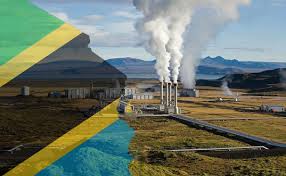Energy extension and energy literacy for sustainable energy development in rural Nigeria
Keywords:
Energy, Extension, Information, Development, RuralAbstract
Energy is a very important part of any sustainable development strategy. Without modern energy services, the poor will go on being poor and the sick will continue to be sick. Access to clean, abundant, reliable domestic energy services is an enormous challenge facing Nigerian and Africa because energy is fundamental for socio-economic development and poverty reduction. Since majority (about 70%) of the Nigerian population live in rural areas, with agriculture as their major occupation, clean energy development and provisioning is important to meet their livelihood needs. Renewable energy technologies have been developed but most of these rural dwellers are ignorant of these technologies. This paper thus brings to the fore, the issue of energy extension and literacy. Energy extension is a necessary tool for education, development and adoption of renewable energy technologies in the rural areas. In developing energy technologies, extension by nature has an important role in promoting the adoption of new technologies and innovations with rural dwellers as the target group. The paper thus outlines the energy situation in the country, need for extension education in energy development and the veritable roles of extension in energy development, education and information provisioning.
References
Abiodun, R., 2003. Fuel price hike spells doom for Nigeria’s forest. htt:www.islamonline.net/English/index.shtml
Awash, T., 2014. Renewable energy assessment for sustainable development and poverty reduction in Ethiopia: Review, Int. J. Mech. Eng. ISSN(P): 2319-2240; ISSN(E):2319-2259., 3(4), 95-106.
Awash, T., 2013. Experimental investigation on performance characteristics and efficiency of electric injera baking pans (Mitad) symposium on adaption to climate change for water, energy and environment, Hawassa University, June 27-28., 1, 311-321.
Dutta, S., 2003. Mainstreaming gender in energy planning and policies, UNESCAP Project, www.energia.org/pubs/index.asp.
Energy Commission of Nigeria (ECN)., 2005. Renewable energy master plan.
Energy Commission of Nigeria (ECN)., 2003. National energy policy, federal republic of Nigeria, Abuja.
Eric Romich, Bowen-Ellzey, N., 2013. Growing community capacity in energy development through extension education, J. ext. June, 51(3) http://www.joe.org/joe/2013june/iw6.
Famuyide, O.O., Anamayi, S.E., Usman, J.M., 2011. Energy resources’ pricing policy and its implications on forestry and environmental policy implementation in Nigeria. Continent. J. Sustain. Dev. 2, 1-7.
Gelb, E.M., Bonati, G., 1998. Evaluating internet for extension in agriculture. J. Agri. Edu. Exten. 5, 211-216. DOI:10.1080/13892249885300321
Hosseini, S.J., Niknami, M., Chizari, M., 2009. To determine the challenges in the application of ICTs by the agricultural extension service in Iran. J. Agr. Ext. Rura. Dev. 1, 27-30.
Hosseini, S.J., Khorsand, Y., Shokri, S., 2010. Extension mechanisms influencing the adoption of sprinkler irrigation system in Iran. Oze. J. App. Sci. 1, 11-17.
ICCDD, 2000. Report of the inter-ministerial committee on combating deforestation and desertification August .
Ighodaro CAU., 2010. Co-integration and causality relationship between energy consumption and economic growth: further empirical evidence for Nigeria., J. Bus. Econ. Manag. 11(1), 97–111.
Kammen, D., Bailis, R., Merzoga, V., 2002. Clean energy for development and economic growth: biomass and other renewable energy options to meet energy and development needs in poor nations. Policy discussion paper,UNDP.
Moris, J., 1991. Extension alternatives in tropical Africa, Overseas development institute, London, UK.
Mfume, O., Boone, E.K., 2008. Promoting renewable energy technologies for rural development in Africa, experiences of Zambia. J. Hum. Eco., 24, 175-189. Pol., 38: 4626-4634. DOI: 10.1016/J.ENPOL.2010.04.018.
Nnaji, C., 2010. In: Nnaji CE, Uzoma CC (eds) CIA World Factbook. Nigeria, http://www.cia.gov/library/publications/the-world-factbook/geos/ni.html
Okafor, E.C.N., Joe-Uzuegbu, C.K.A., 2010. Challenges to development of renewable energy for electric power sector in Nigeria. Int. J. Acad. Res. 2(2), 211–216.
Oladele, O.I., 2005. A Tobit analysis of propensity to discontinue adoption of agricultural technology among farmers in Southwestern Nigeria. J. Cent. Euro. Agr. 6, 249-254. http://www.agr.hr/jcea/issues/jcea6-3/pdf/jcea63-7.pdf.
Purcell, D.L., Anderson, J.R., 1997. Agricultural research and extension: Achievements and problems in national systems. World Bank operations evaluation study, world bank, Washington, DC, USA.
Ramchandra P., Boucar, D., 2011. Green energy and technology. Springer, London Dordrecht Heidelberg New York.
Rai, G.D., 2004. Non- conventional energy sources. Khanna publishers, Delhi.
Sambo, A.S., 2005. Renewable energy for rural development. A Nigerian perspective. ISESCO, Sci. Technol. Visi., 1, 12-22. http://www.isesco.org.ma/ISESCO_Technology_Vision/NUM01/A.S.Sambo/A.S.Sambo.pdf.
Sambo, A.S., 2008. Matching electricity supply with demand in Nigeria. Int. Assoc. Energ. Econ. 4, 32–369.
Sambo, A.S., 2009. Strategic developments in renewable energy in Nigeria. Int. Assoc. Energ. Econ. 4, 15–19.
Swanson et al., 1997. Improving agricultural extension: A reference manual. 3rd ed. FAO, Food. Agr. Organ. Unit. Nation. Rome.
Van Campen, B., Guidi, D., Best, G., 2000. Solar photovoltaics for sustainable agriculture and rural development. 1st Edn., Unit. Nation. Food. Agr. Rome, 77.
Wheeler, S., 2005. Factors influencing agricultural professionals’ attitudes towards organic agriculture and biotechnology. Center for regulation and market analysis. University of south, Australia.
Williams, C.E., 1998. Reaching the African female farmers with innovative extension approaches: Success and challenges for the future. Paper presented to the international workshop on women agricultural intensification and household food security at university of cape coast, Ghana, 25th-28th June.
Wamukonya, N., 2002. A critical look at gender and energy mainstreaming in Africa. www.energia.org/pubs/index.asp
WEC/FAO., 1999. The challenge of rural energy poverty in developing countries. London, world energy council/ Food. Agr. Organ. Unit. Nation.
Weber, B.A., 1987. Extension's roles in economic development. J. Ext. [On-line], 25(1) ,1FEA5. Available at:http://www.joe.org/joe/1987spring/a5.php
Yianna, L., Grazia, P., 2006. Energy and gender issues in rural sustainable development, Food. Agr. Organ. Unit. Nation. Rome.

Published
How to Cite
Issue
Section
Copyright (c) 2020 J.U. Chikaire, A.O. Ani, F.N. Nnadi, C.C. Godson-Ibeji

This work is licensed under a Creative Commons Attribution-NonCommercial-NoDerivatives 4.0 International License.



